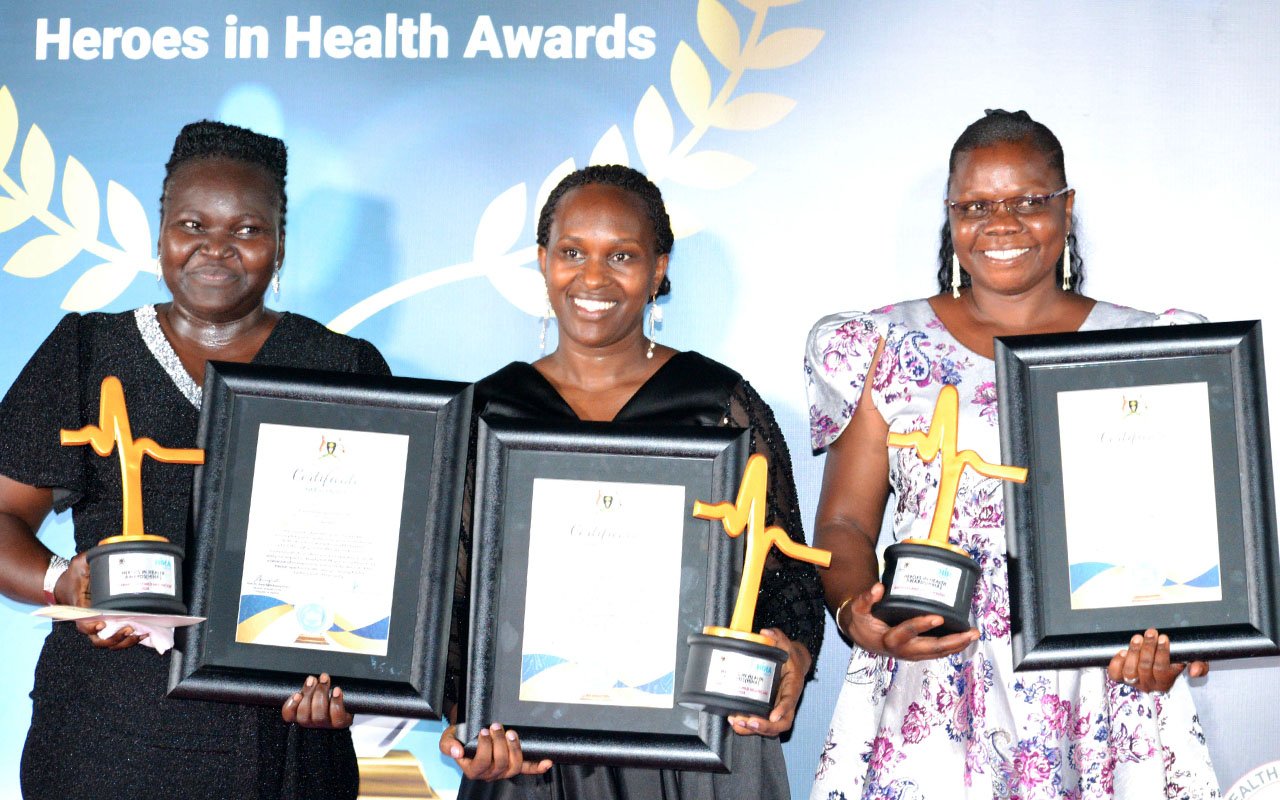Prime
Deaf learners miss out on radio classes

Mr Christian Mwanguhya, a teacher of Mathematics (right), conducts a lesson in studios of Voice of Tooro Radio in Fort Portal last year.
Government resumed the broadcast classes last week. PHOTO/ALEX ASHABA
What you need to know:
- Some of the parents lack sign language skills while schools that teach the pupils are logistically challenged.
Parents whose children have hearing impairments in Acholi Sub-region are uncertain of how the pupils will continue studying in the second lockdown.
Last week, the Ministry of Education launched the resumption of radio broadcast lessons, a few days after schools were closed again as a result of the increasing cases of coronavirus infections.
Under the broadcast arrangement, each of the 15 selected regional radio stations is supposed to air two 25-minute lessons per day from Monday to Wednesday.
The radio stations include Mega FM, Radio Waa, Radio Pacis, and Tembo FM.
Mr Richard Olanya, a father of a 17-year-old pupil in Primary Six at Laroo Deaf-inclusive School in Gulu District, says he cannot assist his son with studies because he lacks sign language skills.
“Even if I have a radio, he cannot participate in the sessions. I also do not know sign language such that I would help interpret the sessions for him,” Mr Olanya says.
He has only mastered a few gestures for essentials such as food.
Mr Lawrence Olweny, a parent in Gulu City, also faces a similar dilemma.
“Deaf learners cannot be helped by their parents because some of them are illiterate and second-hand information, especially during lessons, does not help much,” Mr Olweny says.
Ms Monica Akello, the head of special needs education at Laroo Primary School, says the radio lessons exclude pupils with hearing impairments.
“If they (government) can start distributing reading materials to these learners, it will help them progress with others. However, these materials should have pictures, if not then they will not understand anything,” Ms Akello says.
Mr Walter Kidega, the head teacher of Laroo Primary School, says even if the government had lessons or learning packages, it would be hard to trace the learners since they are scattered across the sub-region.
The school has 57 learners with hearing impairments.
Poverty
Sr Rosalba Akello, the head teacher of St Theresa Primary School, another school for the deaf in Gulu, says many of their pupils come from poor backgrounds whose parents or caretakers cannot afford television or radio to facilitate their remote learning.
She says the school could have helped the learners with learning materials, but they cannot deliver them due to the ban on public transport.
Sr Akello says the school has 27 pupils but some of them come from as far as Adjumani District.
Mr Denis Ocen, the LC5 councillor for persons with disability in Gulu, says the pupils should be taught together since they are not so many.
He says there are about 200 learners with hearing impairments in the district. A 2020 situational analysis of persons with disabilities conducted by the Ministry of Gender shows that 5 per cent of the pupils with hearing impairments access education within an inclusive setting in regular schools, while 10 per cent through special schools and annexes.
Covid response package
Uganda received Shs5.8 billion grant from Global Partnership in Education-GPE programme last year that was channelled through World Bank as Covid-19 Emergency Education Response Package.
The government will use part of the grant to air the lessons.
Mr Patrick Ojok, the coordinator of Gulu Disabled Persons’ Union, says the blind pupils are equally affected.
“Pupils who are blind are also missing out on online learning, as well as questions printed in newspapers. The Job Access with Speech software that the blind use is unaffordable for many parents with such children, especially in rural settings,” he says.
“Government should have supported these learners with appropriate learning materials with the minimal support of their family members,” Mr Ojok adds.
Ministry of education plan for special needs pupils
The Education ministry insists learners with special needs have been catered for in the online learning programme.
Mr Patrick Muinda, the ministry’s spokesperson, says they have secured equipment for distribution throughout the country to help such learners.
“The ministry has procured victor screen readers, braille and MP3 players with corresponding SD cards for those who cannot see or hear while the braille machines are for those who cannot see while the victor readers are for those who need to hear the instructions.”
“Learners who need to hear are being given the MP3 players under the Covid-19 intervention fund for education. This MP3 player has an SD card with content, each of these tools has been installed with content that was given to children,” he adds. “The content in the tools have been transcribed into ordinary English language and recorded or brailed. The materials were taken to the inclusive schools in Kibaale, Hoima, Kagadi, Masindi and some schools in northern Uganda,” Mr Muinda says.
The 2016 Uganda Bureau of Statistics census report shows that 2.5 million children have disabilities.




